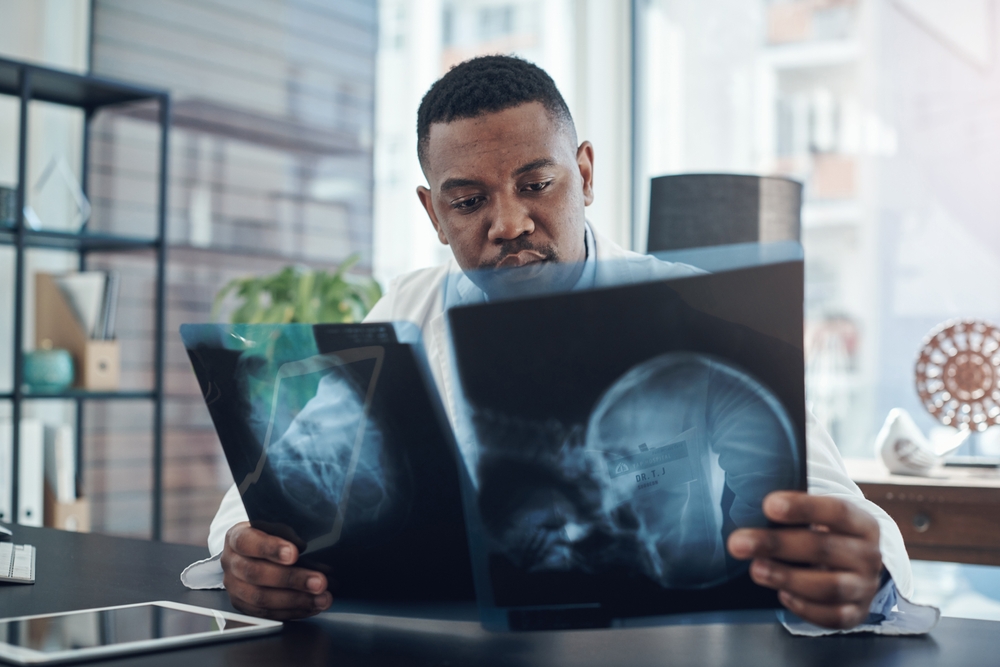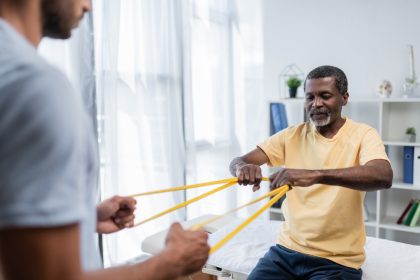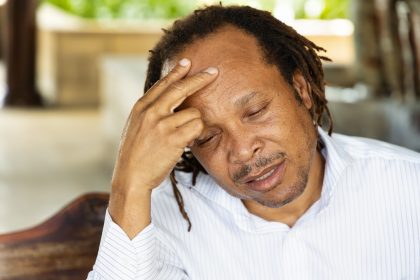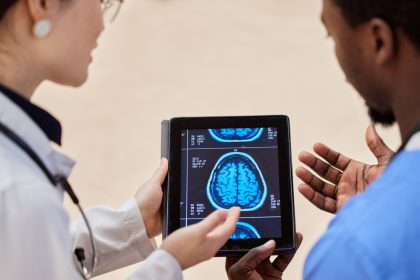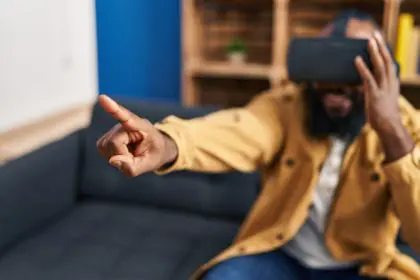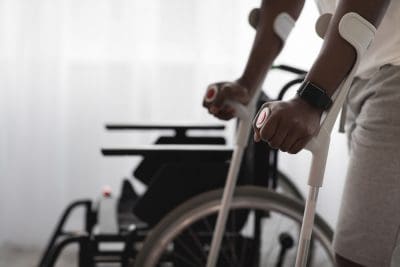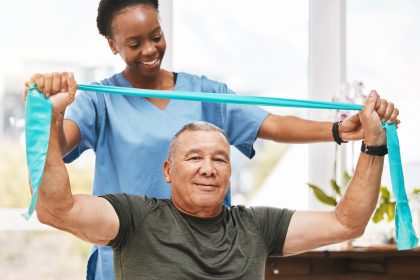A stroke can change a person’s life in an instant, altering their brain and body in ways that are often devastating. Many people understand that a stroke is a medical emergency, but the full impact it has on the brain isn’t always apparent until one experiences it firsthand or through a loved one. The devastation is not only immediate but can lead to long-term consequences that affect daily living, relationships and emotional well-being.
Immediate impact of stroke
When a stroke occurs, it disrupts the blood flow to a part of the brain, depriving it of oxygen and nutrients. The affected brain cells begin to die within minutes, leading to what is essentially a “brain attack.” This immediate impact can be severe, causing sudden numbness, confusion, difficulty speaking or paralysis on one side of the body. The brain is the control center for every bodily function, and when its blood supply is compromised, the effects can be seen across the body.
Strokes are categorized into two main types: ischemic, caused by a blood clot that blocks blood flow to the brain, and hemorrhagic, where a blood vessel in the brain ruptures, causing bleeding and pressure that can damage surrounding brain tissue. Both types lead to brain damage but in different ways. Regardless of type, swift health care intervention is essential to prevent the stroke’s impact from worsening.
How a stroke affects brain function
The human brain is divided into various regions responsible for specific functions such as movement, speech, memory and emotion. The extent of damage a stroke causes depends largely on which area of the brain is affected. For example, a stroke in the left hemisphere can impact speech and language abilities, leading to conditions like aphasia, where a person may struggle to communicate effectively. In contrast, a stroke in the right hemisphere may affect spatial awareness and vision.
Even a minor stroke can lead to cognitive challenges. Memory loss is a common issue faced by stroke survivors, making it difficult for them to remember recent events or even recognize familiar faces. This can lead to feelings of frustration, confusion and isolation as they navigate these significant changes.
The emotional and psychological toll
The brain isn’t just a physical organ; it is also the hub of our thoughts, emotions and sense of self. When a stroke occurs, it can take a significant toll on one’s emotional health. Depression and anxiety are common among stroke survivors, often resulting from the drastic lifestyle changes and limitations on their independence. The loss of cognitive abilities, coupled with physical challenges such as mobility issues or speech difficulties, can lead to feelings of anger, hopelessness and grief.
For many, the emotional aftermath of a stroke can be just as debilitating as the physical effects. Family members and caregivers also experience the psychological strain, witnessing their loved one struggle with tasks that were once simple and effortless. Supporting someone through their recovery can be emotionally exhausting, creating stress and potential burnout.
Long-term effects and rehabilitation
The long-term effects of a stroke can vary significantly from person to person. While some individuals may recover relatively quickly with minimal lasting impact, others may face years of rehabilitation. Physical therapy, occupational therapy and speech therapy are often critical components of recovery, helping survivors regain strength, relearn daily activities and improve their communication skills. Yet, these therapies require dedication, perseverance and a strong support system.
One of the biggest hurdles for stroke survivors is regaining their sense of independence. Daily tasks that were once second nature — like dressing, walking or even eating — can become significant challenges. Stroke survivors may experience muscle weakness, coordination problems or partial paralysis, making routine activities difficult. Stroke rehabilitation aims to help individuals regain as much function as possible, but it can be a long and arduous journey.
Additionally, a stroke increases the risk of subsequent strokes, which means survivors must be vigilant about their health care and lifestyle choices. Managing risk factors like high blood pressure, diabetes and cholesterol, along with adopting healthy eating and exercise habits, is critical in reducing the chances of another stroke.
How a stroke alters relationships
The effects of a stroke are not just felt by the person who has experienced it; they ripple through families and communities. Relationships are often put to the test when a loved one has a stroke. Spouses, children and other close family members frequently become caregivers, a role that can significantly alter the dynamics of the relationship.
Caregiving requires patience, empathy and strength, as the caregiver must navigate the practical aspects of recovery while also offering emotional support. The shift from partner or child to caregiver can create stress, sometimes leading to feelings of resentment, guilt or sadness. Maintaining open communication and seeking support from health care professionals and support groups can help manage these complex emotions and ensure that both the survivor and their loved ones receive the care they need.
The importance of stroke prevention and awareness
Stroke is a leading cause of death and disability worldwide, yet it is largely preventable. Raising awareness about the risk factors and signs of stroke can save lives. Conditions like hypertension, obesity, smoking and excessive alcohol consumption significantly increase the likelihood of a stroke. Recognizing and managing these factors can make a significant difference in preventing strokes or reducing their severity.
Knowing the warning signs of a stroke is equally crucial. The acronym FAST is an essential tool for stroke recognition:
- F – Face Drooping: One side of the face droops or feels numb.
- A – Arm Weakness: Inability to raise one or both arms.
- S – Speech Difficulty: Slurred speech or difficulty speaking.
- T – Time to Call 911: Immediate medical attention is vital.
By acting FAST, individuals can help ensure that someone experiencing a stroke receives the urgent care needed to minimize brain damage and improve their chances of recovery.
The journey of recovery
A stroke survivor’s journey is often marked by strength, resilience and moments of triumph amidst the challenges. While the road to recovery can be difficult, each step forward — whether it’s a simple smile, the first word spoken after losing speech or the ability to stand independently — represents a victory over adversity. This journey requires the support of health care professionals, family, friends and even strangers who share their stories of recovery and hope.
The devastating impact of a stroke on the brain is undeniable, but survivors often emerge with newfound strength and a deeper appreciation for life. Celebrating these small wins and milestones can be incredibly empowering, providing hope for a brighter future despite the struggles faced along the way.
Shining a light on stroke awareness and recovery
Understanding the devastating impact of a stroke on the brain is crucial to promoting awareness, prevention and support for those affected. Strokes change lives, but with timely intervention, proper health care and comprehensive rehabilitation, survivors can overcome many of the obstacles they face. By supporting stroke survivors and advocating for stroke prevention, communities can help those affected find strength in the face of adversity and reclaim their lives.
Taking care of your brain health is a lifelong commitment, and understanding the risks, symptoms and prevention strategies for strokes can make all the difference. Stay informed, spread awareness and take steps to protect yourself and your loved ones from the devastating impact of a stroke. Remember: knowledge and timely action save lives.
This story was created using AI technology.

